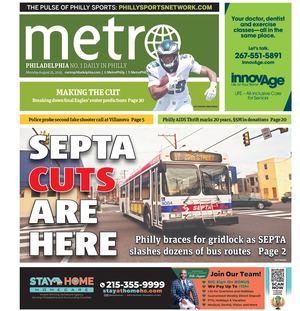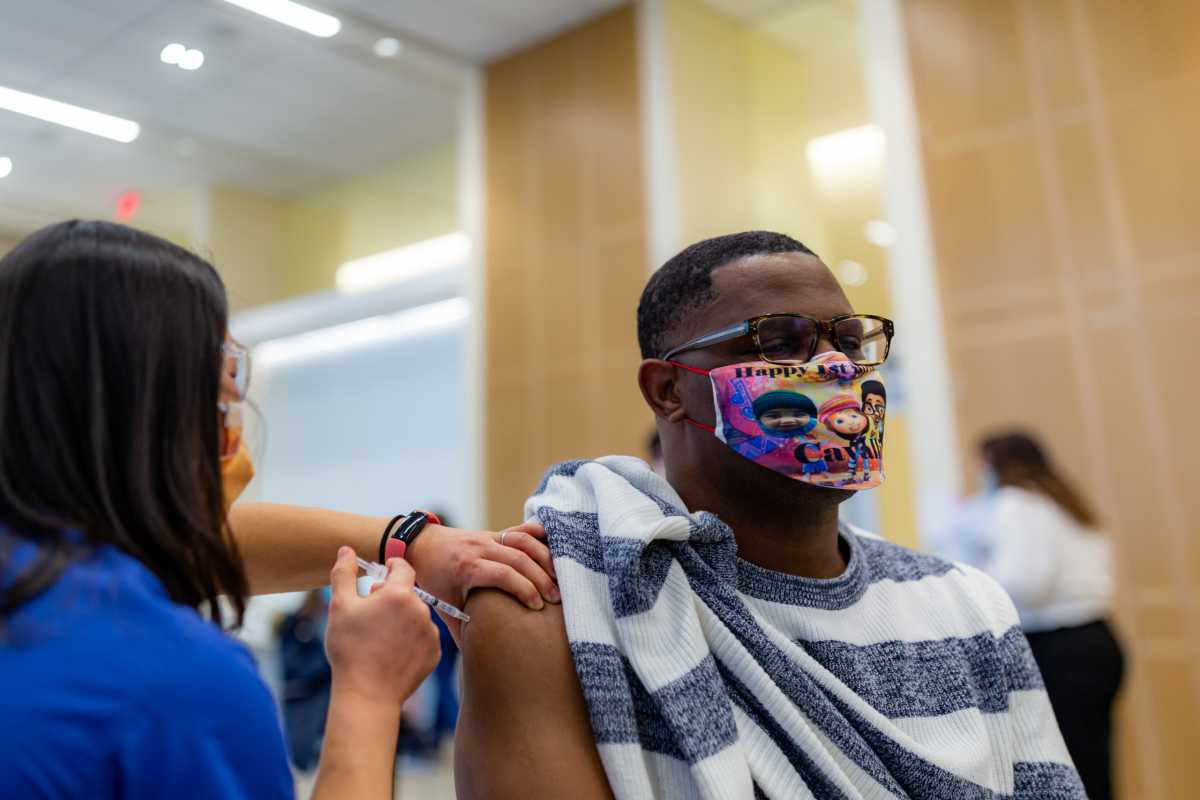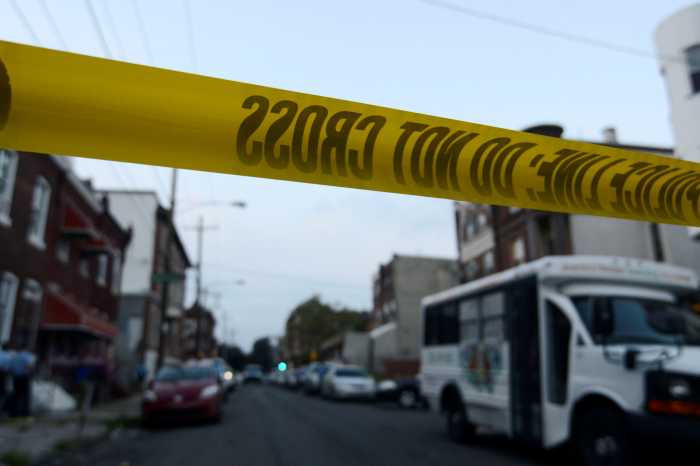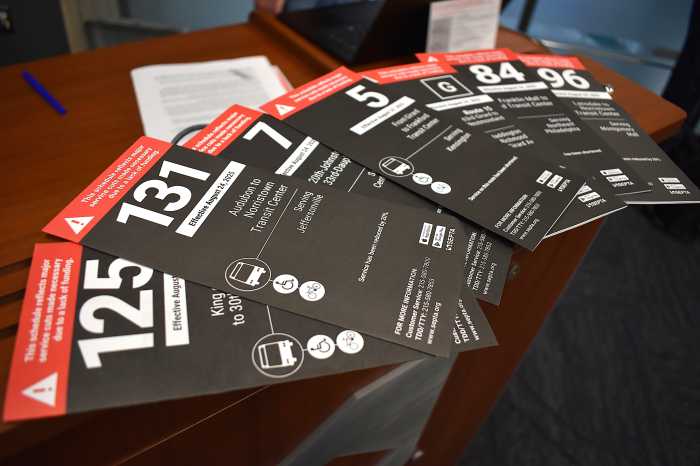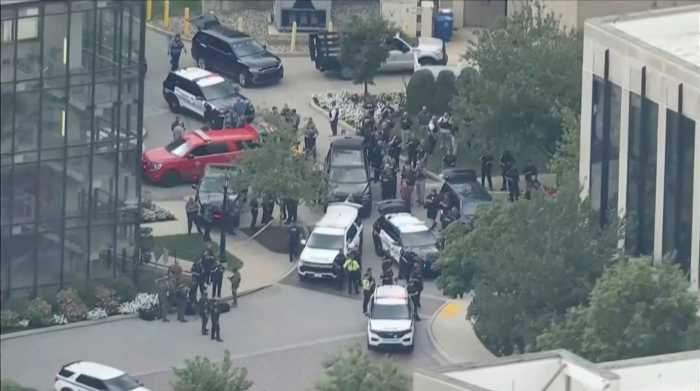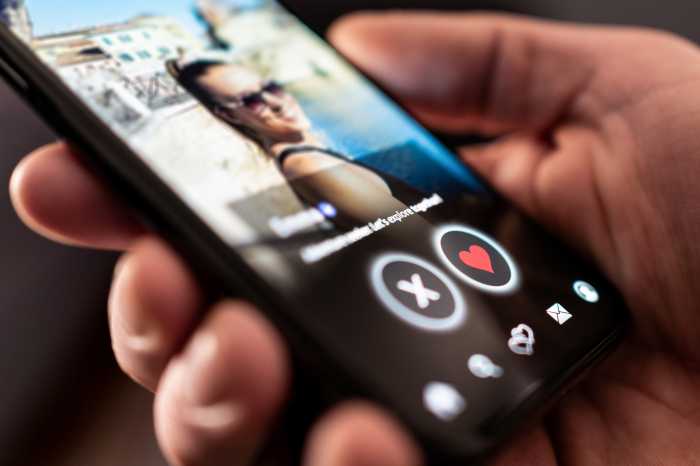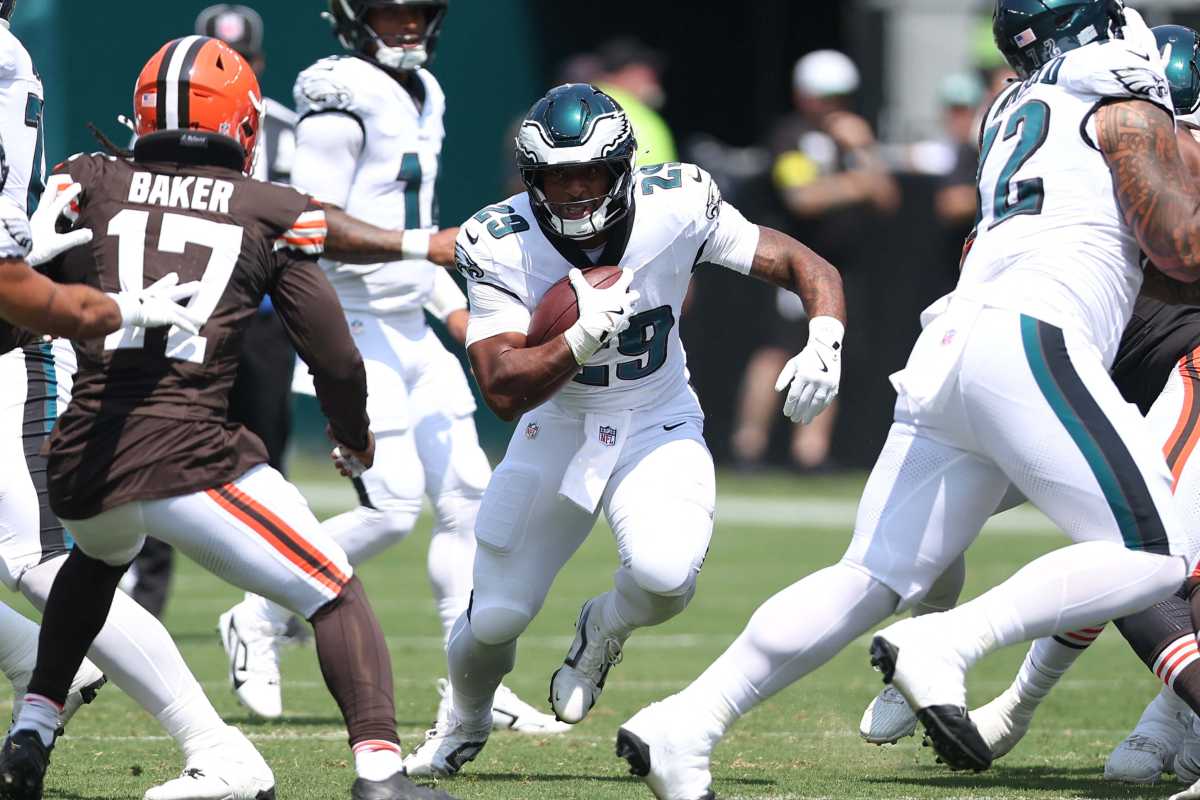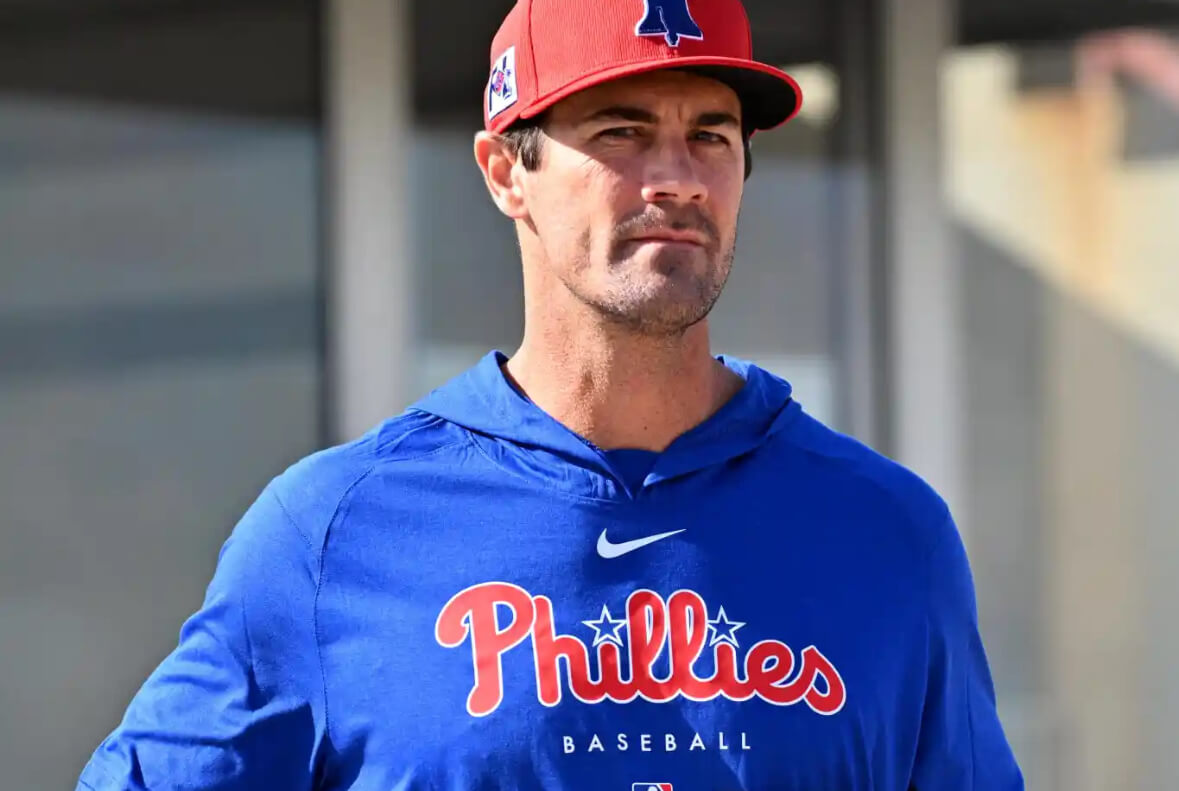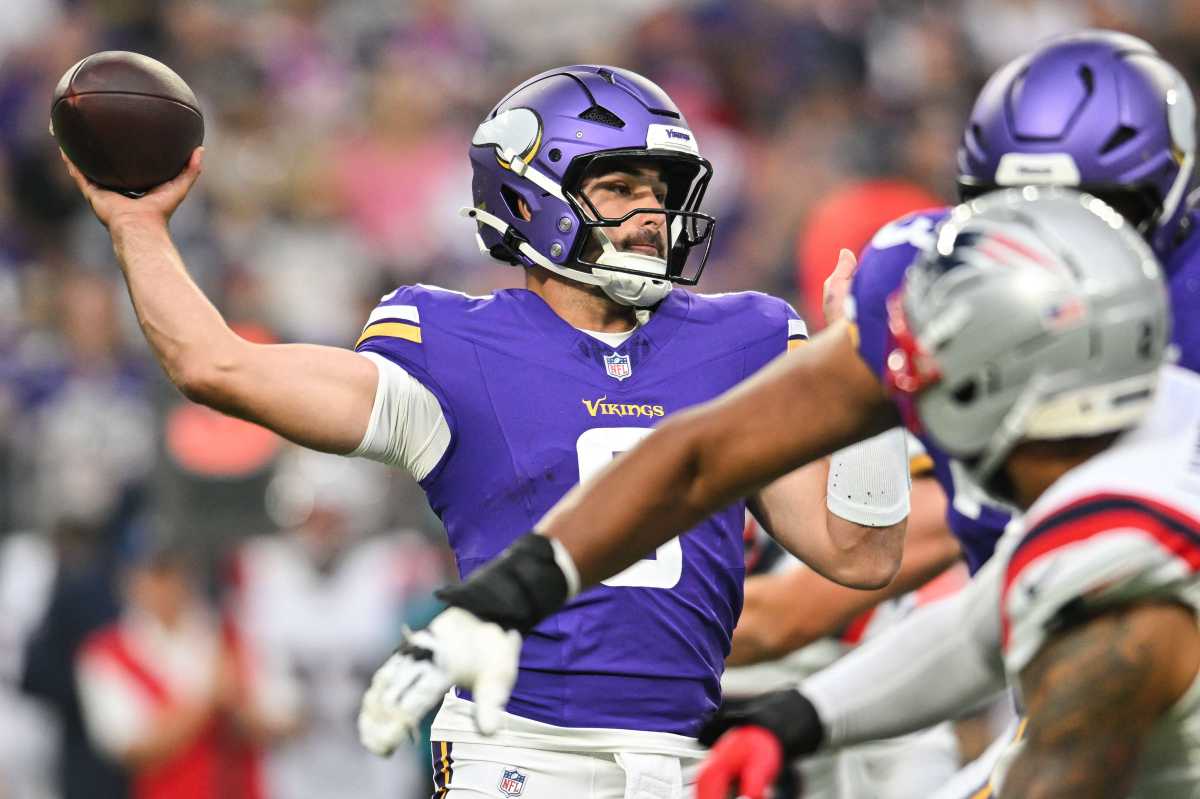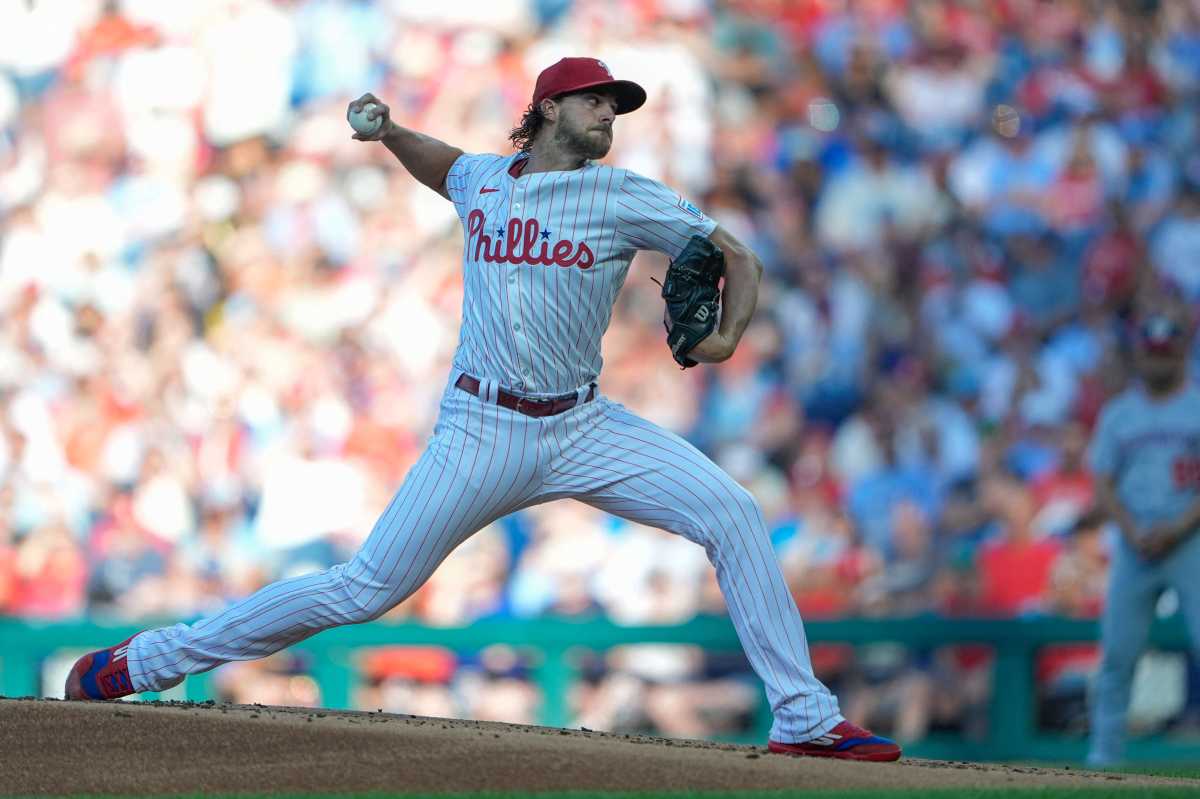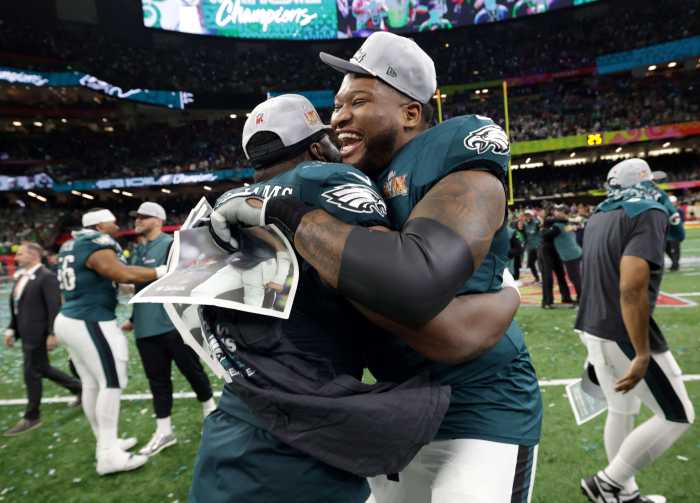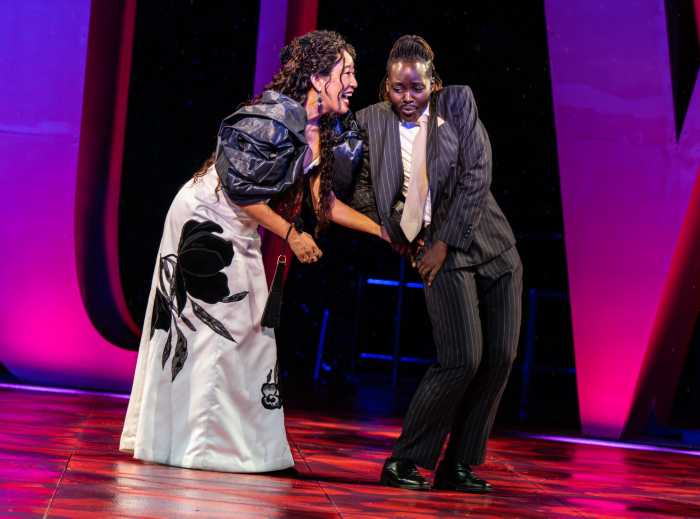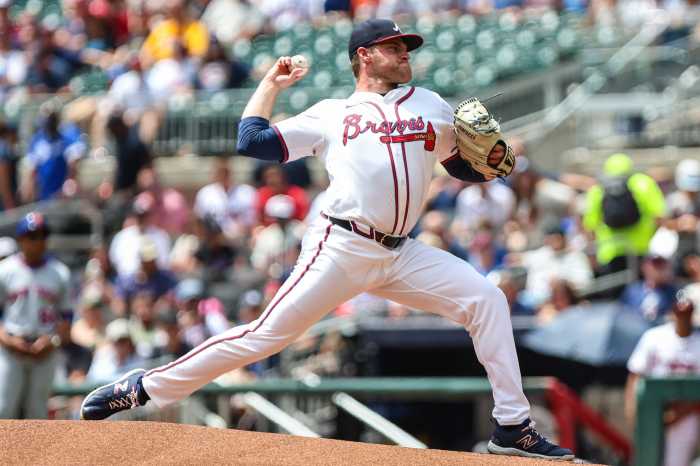Hundreds of teachers and other school staff traveled to the Children Hospital of Philadelphia’s Roberts Center Monday and Tuesday to receive their coronavirus vaccine.
Among them was Tyrone Neal, a counselor at John Welsh Elementary in North Philadelphia, who contracted COVID-19 early in the pandemic.
“A lot of the time we know proportionally and statistically that the African American community sometimes has a problem with believing in the science,” Neal said in interview footage provided by CHOP.
“I felt like I needed to lead by example for my students and also for my community,” he added.
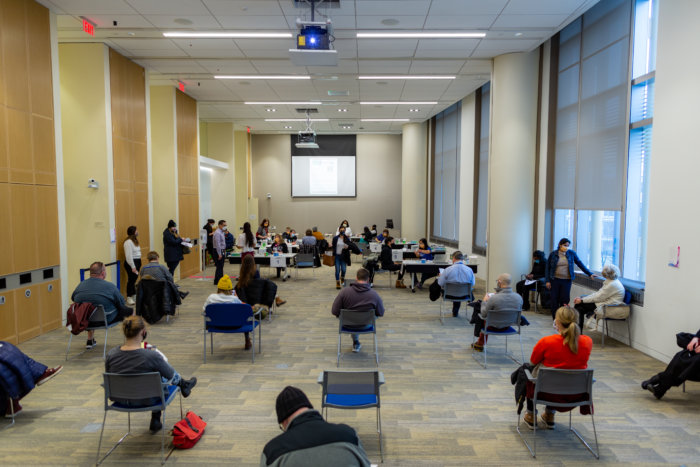
CHOP has invited 25,000 K-12 educational workers to set up appointments, and it plans to send out 10,000 additional emails over the next couple days, according to Dr. Ron Keren, the hospital’s chief medical officer.
By next week, distribution will be occurring at six schools around the city, in addition to the Roberts Center, and CHOP will have the capacity to inoculate 9,000 school personnel a week, Keren said.
He explained that people will be invited in waves, with the first priority group being staff already working in school buildings followed by those scheduled to return in the near future, mostly public school pre-K to 2nd grade teachers.
Officials aim to have all school employees and daycare workers receive both doses of the vaccine over the next six weeks.
“We’re particularly focused on doing all that we can do to promote the safe reopening of schools across Philadelphia,” Keren said during a city-run press briefing Tuesday.
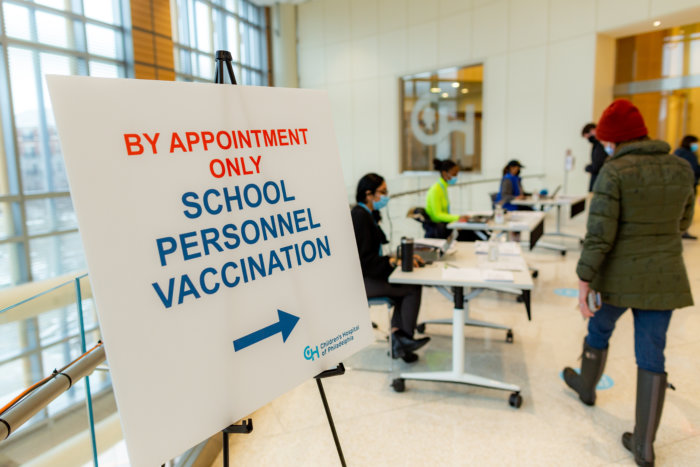
It’s still unclear whether the School District of Philadelphia’s in-person return will begin Monday as planned, due to ongoing mediation with the Philadelphia Federation of Teachers.
The teachers’ union petitioned to have a third-party adjudicator review the district’s plans based on a memorandum of agreement the sides signed last year. PFT leaders have, in particular, questioned the school system’s ventilation standards and decision to use window fans to boost airflow in aging buildings.
Superintendent William Hite has maintained that immunization of all staff is not a prerequisite for in-person classes. Vaccinations are not mandatory for teachers or other district employees.
Mayor Jim Kenney indicated on Tuesday that he supports an idea, previously floated by Hite, of reopening a portion of the buildings deemed to be safe.
“We don’t know what the mediator is going to say yet, and if there are potentially schools that are acceptable to both sides, we could have children in those schools,” he said.
Some schools in the city, including those overseen by the Archdiocese of Philadelphia, have been running in-person operations since September, while many others, including some charter schools, have remained shuttered since the beginning of the pandemic.
Meanwhile, efforts to vaccinate the general public are ramping up.
A federally-managed mega site will tentatively open March 3 at the Pennsylvania Convention Center with the goal of inoculating 6,000 people a day.
Philadelphia Health Commissioner Thomas Farley said people will be invited through the city’s vaccine interest form at phila.gov/vaccineinterest.
Officials intend to reach out to people in under-vaccinated zip codes. Currently, Farley said, they want more residents of North Philadelphia and the Lower Northeast to have access to the injection.
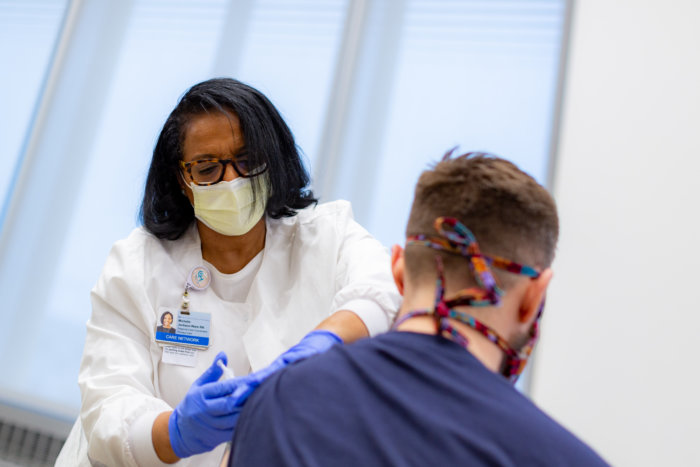
A series of health department-run community clinics debuted Tuesday at the Martin Luther King Older Adult Center in North Philadelphia.
Later this week, similar clinics will be held at the Community Academy of Philadelphia Charter School in Harrowgate and University of the Sciences in West Philadelphia.
The sites are appointment-only, with the department inviting people ages 75 and older and those with chronic health conditions who registered through the city’s vaccine interest form.
Residents who are HIV-positive are now eligible for a vaccine during the current phase of Philadelphia’s roll-out.
The condition was not initially included under the city’s Phase 1B, which includes people with other high-risk medical issues like cancer, diabetes and COPD.
“There are studies that do show people with HIV infection are at increased risk for hospitalization and mortality for COVID,” Farley said.
Philadelphia’s vaccine allocation is going up, officials said, with the city expecting to receive about 37,000 first doses next week, about 5,000 of which will be sent directly to pharmacies.
Pennsylvania state leaders, who oversee the vaccination process outside of Philadelphia, said they are receiving 225,890 first doses this week, an increase of more than 42,000 doses from the prior week.
Just over 174,000 people in the city have received at least one injection, and about 89,000 have gotten both doses.
COVID-19 cases continue to drop. Last week, Philadelphia averaged 219 infections a day with a 4.3% positive test rate, compared to the prior week’s 249 daily cases and 4.4%.
Officials reported 242 confirmed cases, 54 probable cases and 13 virus-related fatalities Tuesday, raising the city’s pandemic death toll to 3,070.
A host of COVID-19 restrictions are set to expire at the end of February, and Farley said the city is planning to carefully pull back some regulations. More details are expected later this week.
One possibility is the return of fans to the South Philadelphia sports complex. Farley confirmed that the health department has received requests from the Sixers, Flyers and Phillies.
It may depend on state rules on event sizes, he said, which preempt the city’s restrictions.
However, Farley said it is “likely” that some fans will be in attendance at Citizens Bank Park for the Phillies home opener on April 1.
